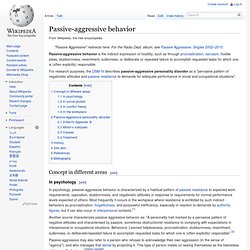

MIND MAPPING. 6 misconceptions someone with borderline personality disorder wants you to know. 1.

We are not manipulative and attention-seeking; we are desperate and we are hurting I cannot count the number of times I have been labelled as these two things by people in my life, including by a handful of the "professionals" who have treated me. Richard Branson Secrets to Success. Download Using Map Free Maps A business has to be involving, it has to be fun, and it has to exercise your creative instincts. — Richard Branson The Entrepreneurial Mind of Richard Branson Sir Richard Branson is an iconic and legendary figure within business circles.

How Mindfulness Improves Your Brain and Relationships. Slow Intelligence. 750+ Free Online College Courses - Compare & Explore. 50 Tips and Insights About Productivity, Happiness and Life. Managing Your Mind – The Key to Everything Else. Think about it.

If you can’t manage what’s going on up in your head, you can’t manage your job, your team, or your world. Managing your mind is the key to everything and it’s also the most difficult job you’ll ever have. STANDARDIZED MINI-MENTAL STATE EXAMINATION (SMMSE) - ADTI SMMSE-GDS Reference Card.pdf. Grain Brain Describes the Staggering Effects of Carbs on the Brain. Renowned neurologist David Perlmutter, MD, blows the lid off a topic that’s been buried in medical literature for far too long: carbs are destroying your brain.

And not just unhealthy carbs, but even healthy ones like whole grains can cause dementia, ADHD, anxiety, chronic headaches, depression, and much more. Dr. Perlmutter explains what happens when the brain encounters common ingredients in your daily bread and fruit bowls, why your brain thrives on fat and cholesterol, and how you can spur the growth of new brain cells at any age. He offers an in-depth look at how we can take control of our “smart genes” through specific dietary choices and lifestyle habits, demonstrating how to remedy our most feared maladies without drugs. Click here for an excerpt from the Grain Brain audiobook! Have questions about gluten intolerance, a gluten free diet or the foods that help improve brain health? What Grain Is Doing to Your Brain. It's tempting to call David Perlmutter's dietary advice radical.

The neurologist and president of the Perlmutter Health Center in Naples, Fla., believes all carbs, including highly touted whole grains, are devastating to our brains. He claims we must make major changes in our eating habits as a society to ward off terrifying increases in Alzheimer's disease and dementia rates. 3 Easy Ways to Whip Your Brain Into Shape. Our brain changes every day.

We can feel when it is firing on all cylinders and our thoughts connect fluidly. Alternatively, we all have days when we feel like we are in a fog and words are harder to find. On those days, we wonder, "Am I losing my mental edge? " Beautiful Mind. Certification courses to boost confidence, charisma & careers.
Imagine how powerful your life would be if it were full of more successes this coming year then last year - and the year before that? Wouldn’t you get excited if you were given the opportunity to discover how to easily decode the non-verbal secrets to reaching your ultimate success potential? Whether you are a spectator in life where you watch everyone else reach higher levels of achievement and self-fulfillment or you always leap at the opportunity to learn something new, you have come to the right place! At the Body Language Institute (BLI), we playfully challenge you to jump into a new world of opportunity, inspiration, and success.
Passive-aggressive behavior. Passive-aggressive behavior is the indirect expression of hostility, such as through procrastination, sarcasm, hostile jokes, stubbornness, resentment, sullenness, or deliberate or repeated failure to accomplish requested tasks for which one is (often explicitly) responsible.

For research purposes, the DSM-IV describes passive-aggressive personality disorder as a "pervasive pattern of negativistic attitudes and passive resistance to demands for adequate performance in social and occupational situations". Concept in different areas[edit] In psychology[edit] In psychology, passive-aggressive behavior is characterized by a habitual pattern of passive resistance to expected work requirements, opposition, stubbornness, and negativistic attitudes in response to requirements for normal performance levels expected of others.
What Are the Characteristics of a Realist? Khan Academy. 30 Challenges for 30 Days. Did you know that it takes 30 days to form a new habit?

The first few days are similar as to how you would imagine the birth of a new river. Full of enthusiasm it gushes forth, only to be met by strong obstacles. The path is not clear yet, and your surroundings don’t agree. Current Projects. Brain fog - modern epidemic? Dealing with Depression: Self-Help and Coping Tips. The road to depression recovery Recovering from depression requires action, but taking action when you’re depressed is hard.

Reiki.nu - Reiki healing made easy! Eye Direction and Lying - How to detect lies from the direction of an individual's gaze / visual accessing cues. Interesting Info -> Lying Index -> Eye Direction & Visual Accessing Cues Eye Movement and Direction & How it Can Reveal Truth or Lies This is a continuation of our previous article Detecting Lies.

Many comments by our visitors asked about how eye direction can indicate the presence of a lie.
Barack Obama's Integrative Brain - Roger Martin. By Roger Martin | 10:21 AM January 29, 2010 There was something intriguing, even a little perplexing, about President Obama’s State of the Union address Wednesday night. It’s the same intriguing note to be found in many of Obama’s most important speeches. And before you ask, it isn’t ideology or rhetoric or even oratory, but something deeper and more complex: It is the clear evidence of a way of thinking not often seen in the Oval Office, or indeed in the corner office. Brain Teasers and answers. Door Body and Knot A door, a body, and a knot can be this. <p>Double. Double doors, a stunt double (for an actor) and a double knot. What does your favorite color say... Memorization techniques for non-linear minds. MEMORIZATION TECHNIQUES for NON-LINEAR MINDS (c) 1995,96 by Robert E. Frazier - all rights reserved This may be reproduced, reprinted, and/or distributed so long as it is not altered in any fashion, and contains the above copyright notice.
For me, the task of memorizing detail has always been a chore. Yet, it seems that much of the education we all receive involves a LOT of such activity. C tabs - 50 Things to Stop Doing Forever. W - RSA - Home. Online Video Lectures and Course Materials — Open Yale Courses. - Julia Cameron Live. Steve Jobs: How to live before you die.
Caring for Your Introvert - Magazine. From Atlantic Unbound: Interviews: "Introverts of the World, Unite! " (February 14, 2006) A conversation with Jonathan Rauch, the author who—thanks to an astonishingly popular essay in the March 2003 Atlantic—may have unwittingly touched off an Introverts' Rights revolution. Follow-up: The Introversy Continues Jonathan Rauch comments on reader feedback about introvert dating—and poses a new question Do you know someone who needs hours alone every day? Self-Hypnosis - Relaxation Techniques from Mind Tools. Personality Tests. Harness the Power of a Healthy Attitude. “Attitude is a little thing that makes a big difference.” ~Winston Churchill. 80 Success Quotes that Will Bring You Motivation. Discovery Health "Triggering and Reversing Muscle Contraction" The coupling process leading from electrical signal (excitation) to contraction in skeletal muscle.
Discovery Health "How Muscles Work" Muscles are one of those things that most of us take completely for granted, but they are incredibly important for two key reasons: Muscles are the "engine" that your body uses to propel itself. Although they work differently than a car engine or an electric motor, muscles do the same thing -- they turn energy into motion.It would be impossible for you to do anything without your muscles. Absolutely everything that you conceive of with your brain is expressed as muscular motion.
The only ways for you to express an idea are with the muscles of your larynx, mouth and tongue (spoken words), with the muscles of your fingers (written words or "talking with your hands") or with the skeletal muscles (body language, dancing, running, building or fighting, to name a few).